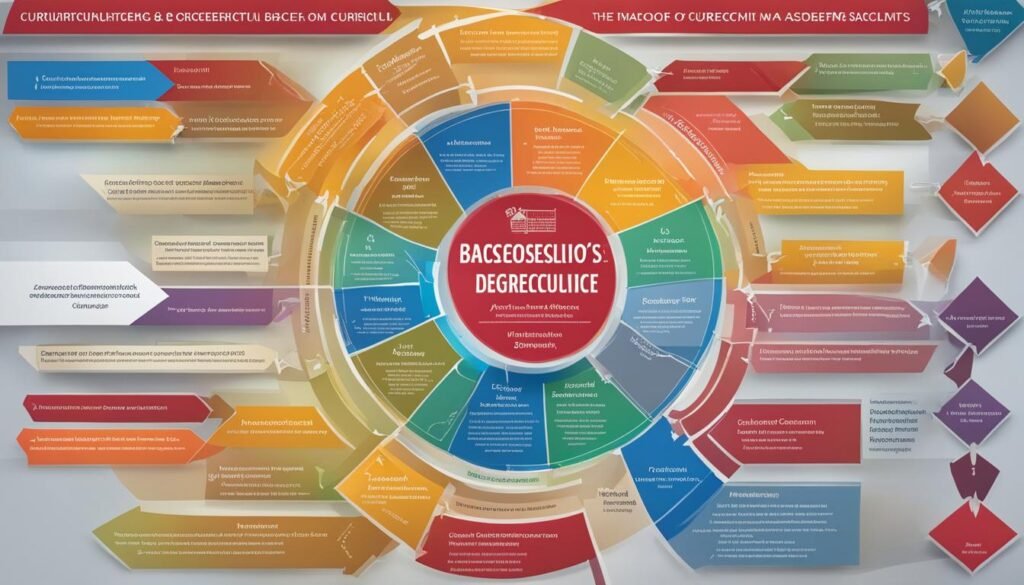The field of nursing offers two common options for aspiring nurses: the Associate Degree in Nursing (ADN) and the Bachelor of Science in Nursing (BSN). Understanding the differences between these two degrees is crucial for making informed decisions about your education and future career opportunities.
Key Takeaways:
- An ADN is a two-year program offered by community colleges and technical schools, while a BSN is a four-year program offered by universities and colleges.
- A BSN provides a more comprehensive education in nursing with a broader range of coursework, including critical thinking, leadership, and research.
- While both ADN and BSN programs lead to becoming a registered nurse (RN), a BSN offers broader career opportunities and a broader scope of practice.
- ADN programs focus on fundamental clinical skills, while BSN programs offer a more diverse curriculum.
- ADN graduates are eligible to work as RNs, but BSN graduates have more opportunities for career advancement, specialization, and leadership roles.
Educational Background
In the field of nursing, the educational background plays a significant role in shaping the career path and opportunities available to aspiring nurses. When it comes to pursuing a nursing degree, there are two common options: the Associate Degree in Nursing (ADN) and the Bachelor of Science in Nursing (BSN).
The ADN is typically a two-year program offered by community colleges and technical schools. It focuses on providing students with the necessary knowledge and skills to pass the NCLEX-RN and enter the nursing profession as a registered nurse. On the other hand, the BSN is a four-year program offered by universities and colleges, offering a more comprehensive education in nursing.
ADN – Associate Degree in Nursing
The ADN program is designed to provide a solid foundation in nursing practice and prepare students for entry-level positions in healthcare. The curriculum includes coursework in anatomy, physiology, pharmacology, and nursing fundamentals. ADN programs also incorporate clinical rotations to allow students to gain hands-on experience in various healthcare settings.
BSN – Bachelor of Science in Nursing
The BSN program offers a more extensive and well-rounded education in nursing. In addition to the core nursing coursework, BSN students explore subjects like healthcare policy, ethics, evidence-based practice, and leadership. BSN programs also provide opportunities for research and community health experiences, allowing students to develop a broader understanding of the nursing profession.
While both the ADN and BSN pathways lead to becoming a registered nurse, a BSN offers a more comprehensive education and a broader range of career opportunities. Graduates with a BSN often have an advantage when it comes to pursuing leadership roles, specialized nursing positions, and further education in nursing. Ultimately, the choice between an ADN and a BSN depends on individual career goals, educational preferences, and desired scope of practice.
Curriculum

The curriculum of an Associate Degree in Nursing (ADN) program primarily focuses on providing students with fundamental clinical skills and knowledge required for entry-level nursing practice. The coursework is designed to equip students with practical skills that are immediately applicable in real healthcare settings. ADN programs typically include courses such as anatomy and physiology, pharmacology, medical-surgical nursing, pediatric nursing, and maternal-newborn nursing. These programs aim to develop competent nurses who can provide safe and effective patient care.
On the other hand, the curriculum of a Bachelor of Science in Nursing (BSN) program is more comprehensive and in-depth. In addition to the core nursing courses, BSN students also study subjects such as healthcare policy, ethics, leadership, and evidence-based practice. The curriculum is designed to provide a broader education that encompasses not just clinical skills but also a deeper understanding of nursing theory, research, and the social and cultural aspects of healthcare. BSN programs emphasize critical thinking, problem-solving, and decision-making skills, preparing students for a more diverse range of roles within the nursing profession.
Key differences in curriculum:
- ADN programs focus primarily on fundamental clinical skills and patient care.
- BSN programs offer a broader and more in-depth curriculum.
- BSN programs include coursework in healthcare policy, ethics, leadership, and evidence-based practice.
- BSN programs emphasize critical thinking, problem-solving, and decision-making skills.
Both ADN and BSN programs provide the necessary education and training to become a Registered Nurse (RN). However, the curriculum differences between the two programs reflect the level of educational preparation provided and the depth and breadth of knowledge and skills acquired. The choice between an ADN and a BSN depends on the individual’s career goals, educational preferences, and desired scope of practice within the nursing profession.
Clinical Experience

One of the key differences between an Associate Degree in Nursing (ADN) and a Bachelor of Science in Nursing (BSN) is the level of clinical experience provided in each program.
Clinical Rotations and Hands-On Training
ADN programs typically include clinical rotations that offer students hands-on experience in healthcare settings. These rotations focus on developing essential clinical skills and providing a foundation in nursing practice. While ADN students gain valuable exposure to patient care, the range of clinical experiences may be more limited compared to BSN programs.
BSN programs also incorporate clinical rotations, but they often provide a more diverse and comprehensive range of experiences. BSN students have the opportunity to work with a broader range of patient populations in various healthcare settings, allowing for a deeper exploration of complex patient care scenarios. This exposure to different clinical situations prepares BSN graduates for a wider range of nursing roles and challenges.
Expanding Skillsets and Competencies
BSN programs typically offer a more extensive curriculum that includes coursework in research, leadership, and community health. This broader educational foundation equips BSN students with the skills and knowledge needed for a variety of nursing roles beyond direct patient care. BSN graduates often have a greater understanding of evidence-based practice, healthcare policies, and ethical considerations, which enhances their ability to provide comprehensive and holistic care to patients.
Overall, while both ADN and BSN programs provide clinical experience, BSN programs offer a more diverse range of experiences and opportunities for students to develop a broader skill set. This can position BSN graduates for a wider range of nursing career opportunities and professional growth.
Career Opportunities and Professional Growth
Graduates of ADN programs are eligible to take the NCLEX-RN and become licensed as RNs, allowing them to work in various healthcare settings and provide direct patient care. However, their career advancement opportunities may be more limited compared to BSN-prepared nurses.
BSN graduates have a broader scope of practice and are often considered for leadership roles, specialized nursing positions, and opportunities in areas such as research, education, and public health. BSN graduates can pursue further education and advance their careers by enrolling in RN-to-BSN programs or other advanced nursing programs.
This allows them to expand their knowledge and qualifications, while also opening doors to advanced degrees in nursing such as a Master of Science in Nursing (MSN) or a Doctor of Nursing Practice (DNP). Overall, the choice between an ADN and a BSN depends on career goals, educational preferences, and desired scope of practice.
FAQ
What is the difference between an Associate Degree and a Bachelor’s Degree in nursing?
An Associate Degree in Nursing (ADN) is a two-year program offered by community colleges and technical schools, while a Bachelor of Science in Nursing (BSN) is a four-year program offered by universities and colleges.
What is the educational background required for an ADN and a BSN?
An ADN requires a two-year program typically offered by community colleges and technical schools, while a BSN requires a four-year program offered by universities and colleges.
How does the curriculum differ between an ADN and a BSN?
ADN programs focus on fundamental clinical skills and knowledge required for entry-level nursing practice, while BSN programs offer a broader range of coursework including subjects like healthcare policy, ethics, leadership, and evidence-based practice.
What kind of clinical experience do ADN and BSN programs provide?
ADN programs include clinical rotations to provide hands-on experience in healthcare settings, while BSN programs offer a wider variety of clinical experiences and a deeper exploration of complex patient care scenarios.
What are the career opportunities and professional growth options for ADN and BSN graduates?
ADN graduates are eligible to become licensed as Registered Nurses (RNs) and work in various healthcare settings. BSN graduates have a broader scope of practice and are often considered for leadership roles, specialized nursing positions, and opportunities in research, education, and public health.
Source Links
- https://www.terristeffes.com/2023/10/understanding-difference-between.html?m=1
- https://abound.college/gradschool/advice/whats-your-education-style-lets-decode-the-terms/
- https://www.lunavistahhc.com/understanding-the-different-types-of-nurses/


